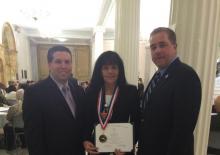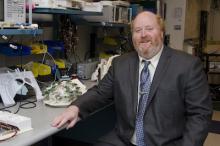We know from research, and from everyday life, that an itch can be contagious. What we don’t fully understand, from a neuroscience perspective, is why.
Martinos Center News

The probe could help doctors quickly find and treat further clots in the wake of a stroke, by way of a single, whole-body PET scan.
Two young researchers — Christin Sander and Berkin Bilgic — were recognized for their already-considerable contributions to science when they were named Junior Fellows by the International Society for Magnetic Resonance in Medicine.
A new technology developed by the Martinos Center’s Qianqian Fang and colleagues has been named a leading innovation in Reimagining Global Health, the inaugural report of the Innovation Countdown 2030 initiative.
MRI has revolutionized our understanding of the brain in both health and disease. But because of its speed, it doesn’t always meet the needs of today’s cutting-edge applications. Kawin Setsompop is looking to change this.
For all the history of shamanic rituals, for all their significance to the human experience, we've known very little about the neural underpinnings of trance. Until now.

The Society of Nuclear Medicine and Molecular Imaging (SNMMI) held its annual meeting last month and members of the Caravan Lab in the MGH Martinos Center were widely recognized for their contributions.
When Jody Camerario Roberts crosses the stage at Bunker Hill Community College this weekend she will have reached a milestone decades in the making.
New technology developed at the Martinos Center for Biomedical Imaging at Massachusetts General Hospital, by Giorgio Bonmasar and colleagues, may extend the benefits of magnetic resonance imaging (MRI) to many patients whose access to MRI is currently limited.
He was chosen for the award for his project, "Magnetic Particle Imaging for Breast Cancer Screening and Monitoring."










